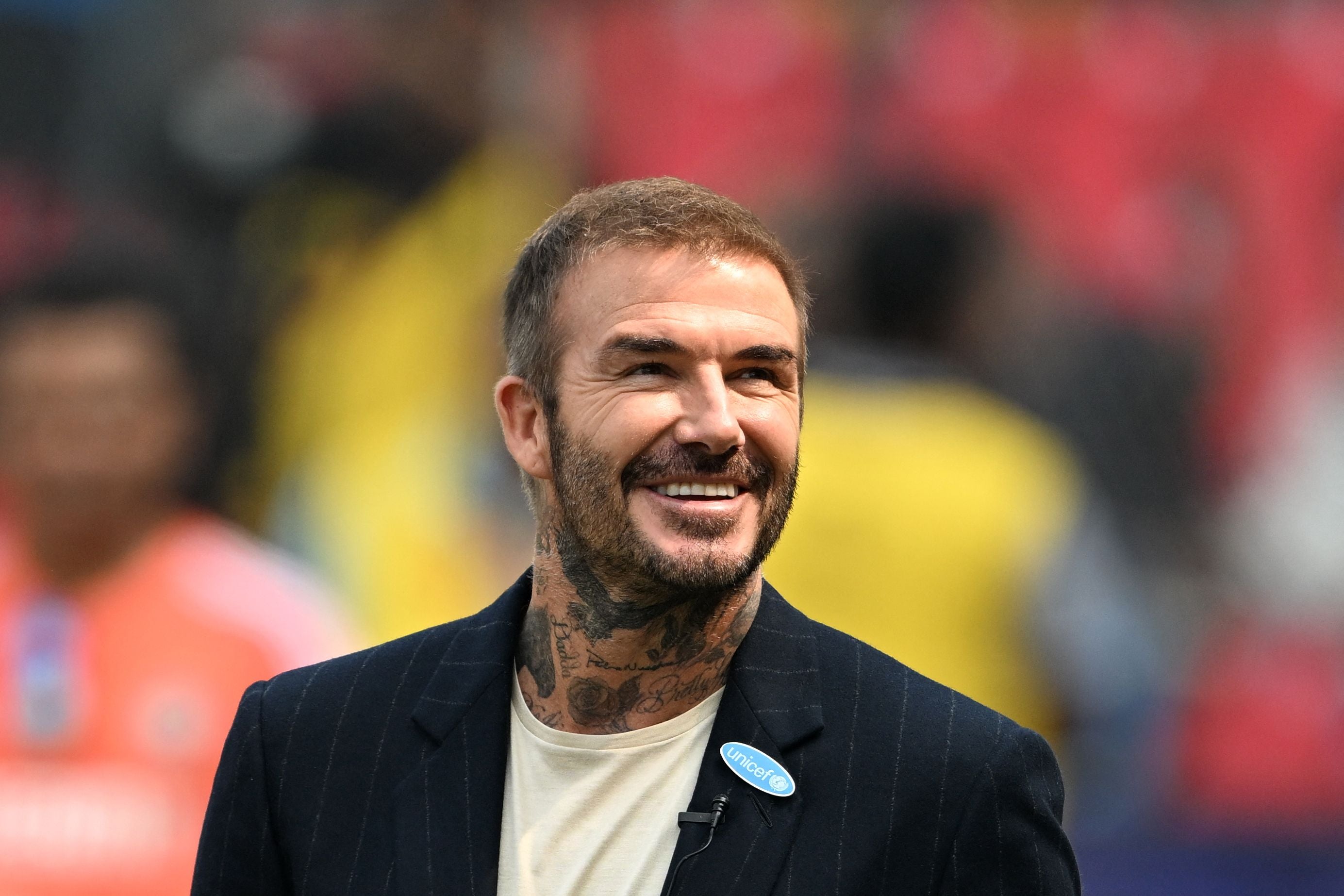Gen Z workers want a gold star at every turn – when did we become a nation of ‘praise junkies’?
As David Beckham reveals how his father waited until he’d won his 100th England cap before paying him a basic compliment, Paul Clements asks why young people in the workplace now expect to be gold-starred at every turn


Your support helps us to tell the story
From reproductive rights to climate change to Big Tech, The Independent is on the ground when the story is developing. Whether it's investigating the financials of Elon Musk's pro-Trump PAC or producing our latest documentary, 'The A Word', which shines a light on the American women fighting for reproductive rights, we know how important it is to parse out the facts from the messaging.
At such a critical moment in US history, we need reporters on the ground. Your donation allows us to keep sending journalists to speak to both sides of the story.
The Independent is trusted by Americans across the entire political spectrum. And unlike many other quality news outlets, we choose not to lock Americans out of our reporting and analysis with paywalls. We believe quality journalism should be available to everyone, paid for by those who can afford it.
Your support makes all the difference.Top marks to David Beckham’s dad for taking a full two decades to come up with a compliment to pay to his son, by common consensus one of the greatest English football players of his generation.
“My dad never told me I’d done well really until my hundredth cap,” Beckham junior has revealed to James Corden in a podcast. “That was the first time he turned around to me and said: ‘You’ve made it, boy.’”
The momentous father-son moment came in 2008, while Beckham was signed to LA Galaxy – so not during his glory years at Manchester United, or his spell alongside the Galacticos at Real Madrid – after he’d played adequately for 61 minutes in an otherwise forgettable friendly against France, who beat England 1-0.
At first glance, it’s an odd occasion for a drill sergeant of a dad who had kept his counsel about his high-achieving son for years to break his duck. Though clearly still momentous for the boy who had waited for this peep of praise, it was preordained. That it happened regardless of Beckham’s on-the-day performance means it contains something of a sting. You’ve reached your century for your country, here’s a pat on the back from your old man. Now don’t let it go to your head.
Beckham senior knew what he was doing, a variation on the “giving with one hand, taking away with the other” trick that’s straight out of the svengali fathers’s handbook. Joe Jackson and Mathew Knowles would be proud.
Alex Ferguson – the Manchester United manager Goldenballs reveres for having turned a naturally gifted player into a hard-working captain, and for steering him away from the distractions of fame and celebrity – was a master of the “reverse s*** sandwich”: offering some wafer-thin positive feedback delivered in between two doorstep-thick slices of criticism. In one post-match question session, Fergie showed his natural flair for never letting praise go to someone else’s head when he remarked: “David Beckham played well? I thought the two wide players did well for us today…”
There’s something to be said for never laying the compliments on thick. According to parenting experts, children who are exposed to excessive praise can turn out to be highly sensitive to failure, less likely to take risks and more likely to give up in the face of a challenge.
When it comes to my own dad, I’d have to rack my brains for times when praise was forthcoming. A man who rarely felt compelled to attend parents’ evenings, let alone a recital or play I was in, if he was proud he kept me guessing. I knew he was – but, for reasons mostly of his own Fifties’ upbringing, he’d never say. It would somehow have been more alarming if he had.
By today’s parenting standards, Ted Beckham’s reticence looks dark and negative, an uptightness borne of a father struggling to process how his own prowess has been far overshadowed by his son’s. This is the stuff of Greek legend.
But it is only remarkable in the era of emotional incontinence in which we find ourselves. The downsides of overpraise – that drip-drip of motivating “good boy/girl”s intended to bolster a child’s self-confidence and self-esteem but which, in fact, make them feel uncertain about their true abilities – are only now being discovered.
In his essay, “The Most Praised Generation Goes to Work”, US columnist Jeffrey Zaslow criticised the rise of the “praise parade” in the modern workplace, whereby younger generations quietly expect to be gold-starred at every turn – well done you for turning up on time, well done you for not missing a deadline. While motivating to some, such overpraise can leave employees puzzled and frustrated by not receiving praise for a job not particularly well done.
To avoid raising a praise junkie, congratulate the efforts, not the child. Ted Beckham would have done better to have applauded his little national hero not after captaining an inconsequential friendly, but after any of the 19 major trophies he won for his clubs during his 20-year career.
David Beckham waited 20 years for praise from his dad? Perhaps he’s lucky he got any at all.
Join our commenting forum
Join thought-provoking conversations, follow other Independent readers and see their replies
Comments